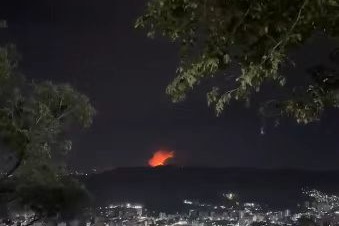Exotic mooncakes raise eyebrows among shoppers, authorities
Xinhua | Updated: 2017-09-22 17:00
Mid-Autumn Day, the 15th day of the eighth month of China's lunar calendar, falls on Oct 4 this year. The festival has been celebrated for more than 3,000 years during the full moon to mark the autumn harvest. It is also an occasion for family gatherings featuring lanterns, riddles and, of course, mooncakes.
While mooncakes are traditionally stuffed with sweetened bean paste or lotus seed paste, some mooncake sellers have caused a stir by advertising more exotic fillings, such as abalone, bullfrog and even traditional Chinese medicine (TCM).
On e-commerce website Taobao.com, a set of abalone mooncakes costs 268 yuan ($41). The ingredient table on the package says the amount of abalone is "higher than 3 percent." However, the vendor claimed that the mooncakes only have "abalone flavor," rather than actual abalone meat. In the comment section of another vendor on Taobao, some customers said that the mooncakes had "very little abalone meat" and "tasted like ordinary steamed buns."
Another vendor has been selling "TCM mooncakes" on Taobao. The ingredient table claims the cakes contain prepared rehmannia root, Chinese angelica, white peony root and chuanxiong, four common TCM ingredients. The advertisement for the mooncakes touts their "clot-absorbing" and "nourishing" effects.
Zhang Hua, a state-level health manager in Northwest China's Shaanxi province, said that caring for one's health "takes some time" and cannot be achieved through a few bites of mooncake.
"Mooncakes are seasonal food," Zhang said. "It is impossible to 'nourish the body' by just eating the ingredients once or twice."
A 2015 regulation set specific standards for mooncake production in China. For example, the regulation stipulated that mooncakes with lotus seed paste stuffing should contain at least 60 percent lotus seeds.
"Mooncakes should be made according to the standards, and the process should be supervised," said an industry insider who declined to be named.
A mooncake maker told Xinhua that many handmade mooncakes on the market are produced without government certificates and pose potential hazards to human health.
"Many people just make mooncakes in home workshops without paying attention to hygiene," said the mooncake producer.
Authorities across the country have already begun an overhaul of the industry as Mid-Autumn Festival approaches. In Beijing, the local food and drug administration launched an inspection of 53 mooncake-making companies, while establishing a reporting system to enhance supervision. Similar inspections have been initiated in provinces including Hainan and Guizhou.
























